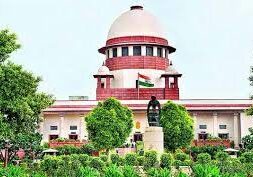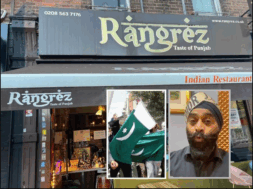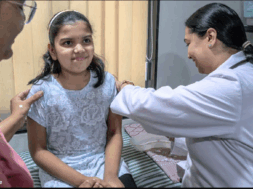
NEW DELHI, Jan 13: The Supreme Court on Friday agreed to examine whether girls as young as 15 years can enter into wedlock on the basis of custom or Muslim personal law when such marriages constitute an offence in statutory law.
A Bench led by Chief Justice of India D.Y. Chandrachud issued a formal notice on the petition filed by the National Commission for Protection of Child Rights. The NCPCR had filed the petition in the apex court against a recent order of the Punjab and Haryana High Court which held that a girl on attaining puberty or the age of 15 years and above, could be married on the basis of Muslim personal law, irrespective of the provisions of Protection of Children from Sexual Offences Act.
The Supreme Court said the High Court order would not act as a judicial precedent for other courts. Appearing for NCPCR, Solicitor General Tushar Mehta submitted that “girls as young as 14 and 15 are being married. Can personal law and custom be pleaded in the face of statutes such as POCSO and the Indian Penal Code, which make such marriages an offence?”
In contrast to the Punjab and Haryana High Court judgement, the Kerala High Court had recently held that provisions of POCSO would apply if the bride or groom was a minor, irrespective of the validity or otherwise of the marriage. The NCPCR has contended that laws such as POCSO and the Prohibition of Child Marriage Act are secular in nature and should apply to all sections of the society.
The Prohibition of Child Marriage (Amendment) Bill, 2021 has sought to amend the Prohibition of Child Marriage Act, 2006, to increase the minimum age of marriage for women from 18 to 21 years. The legal age for marriage is 18 years for women and 21 years for men. Marriage below this age is considered to be child marriage, an offence.
In December 2022, the apex court had asked the government to respond to a separate petition filed by the National Commission for Women (NCW) to make the minimum age of marriage for Muslim women on par with persons belonging to other faiths. NCW, like the NCPCR, had raised the question whether personal law could override statutory provisions of POCSO, etc.
The NCW had argued that the practice of marrying below the age of 18 would expose Muslim women to abuse and harassment. It was arbitrary and discriminatory. The petition had sought the enforcement of the fundamental rights of minor Muslim women who had contracted marriage before attaining the age of majority, whether consensually or otherwise.
“Under the Indian Christian Marriage Act, 1872, Parsi Marriage and Divorce Act, 1936, Special Marriage Act, 1954 and Hindu Marriage Act, 1955, the minimum age of marriage for a man is 21 years and for a woman is 18 years. However, under the Muslim personal law in India, which continues to remain uncodified and unconsolidated, persons who attained puberty are eligible to get married i.e. on attaining the age of 15 years, while they are still minor”, the NCW petition had stated.
(Manas Dasgupta)














